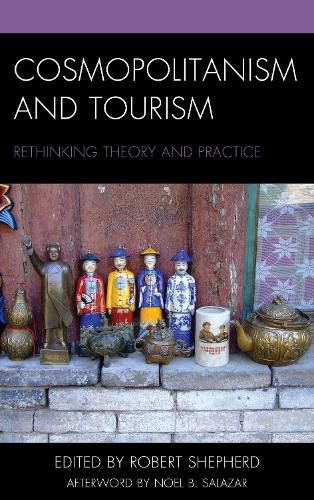Readings Newsletter
Become a Readings Member to make your shopping experience even easier.
Sign in or sign up for free!
You’re not far away from qualifying for FREE standard shipping within Australia
You’ve qualified for FREE standard shipping within Australia
The cart is loading…






Within tourism studies, the cosmopolitan potentials of tourism have often been situated within a broader conversation about globalization, an approach that implies that cosmopolitanism is a predictable by-product of globalization and becoming more cosmopolitan should be the goal of travel. And yet a fundamental value of a cosmopolitan outlook-namely, to not only to be at home in the world but also to experience the world in an authentic sense-depends on the culturally embedded, parochial, and particular world views which it rejects. In Cosmopolitanism and Tourism: Rethinking Theory and Practice, contributors take this as a starting point. What does a worldly consciousness mean to people situated in different cultural landscapes and to what extent might these intersect with cosmopolitan values? How is cosmopolitanism marketed in tourism and tourist-related industries such as service learning and study abroad? And finally, what roles do social and economic class, educational background, gender, and other factors have in cosmopolitan claims? The contributors to this edited collection address these questions in a series of case studies that range from Guatemala, Bolivia, and Ireland to China, India, and Dubai.
$9.00 standard shipping within Australia
FREE standard shipping within Australia for orders over $100.00
Express & International shipping calculated at checkout
Within tourism studies, the cosmopolitan potentials of tourism have often been situated within a broader conversation about globalization, an approach that implies that cosmopolitanism is a predictable by-product of globalization and becoming more cosmopolitan should be the goal of travel. And yet a fundamental value of a cosmopolitan outlook-namely, to not only to be at home in the world but also to experience the world in an authentic sense-depends on the culturally embedded, parochial, and particular world views which it rejects. In Cosmopolitanism and Tourism: Rethinking Theory and Practice, contributors take this as a starting point. What does a worldly consciousness mean to people situated in different cultural landscapes and to what extent might these intersect with cosmopolitan values? How is cosmopolitanism marketed in tourism and tourist-related industries such as service learning and study abroad? And finally, what roles do social and economic class, educational background, gender, and other factors have in cosmopolitan claims? The contributors to this edited collection address these questions in a series of case studies that range from Guatemala, Bolivia, and Ireland to China, India, and Dubai.